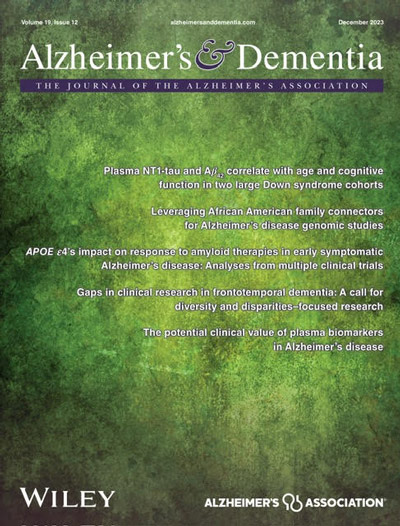Cardiometabolic disorders and mild cognitive impairment in White and Black Americans
Abstract
INTRODUCTION
Mild cognitive impairment (MCI) represents a transitional stage between normal aging and dementia. We investigate associations among cardiovascular and metabolic disorders (hypertension, diabetes mellitus, and hyperlipidemia) and diagnosis (normal; amnestic [aMCI]; and non-amnestic [naMCI]).
METHODS
Multinomial logistic regressions of participant data (N = 8737; age = 70.9 ± 7.5 years) from the National Alzheimer's Coordinating Center Uniform Dataset Version 3 protocol cohort were used.
RESULTS
Controlling for demographic/health variables, individuals with aMCI, though not naMCI, showed a higher likelihood of hypertension, diabetes, and hyperlipidemia compared to cognitively normal counterparts, though no differences between aMCI/naMCI. Black Americans, regardless of cognitive status, were more likely to fall into hypertension and diabetes groups compared to White Americans.
DISCUSSION
These findings underscore the critical role of diagnosis and race in MCI diagnosis and care, emphasizing the need for tailored interventions to address inequities and reduce the risk of progression to dementia.
Highlights
- The study leverages a large, racially diverse cohort from the NACC database.
- Black Americans with non-amnestic mild cognitive impairment(naMCI) show highest comorbidity burden.
- No significant differences in comorbidity burden between amnestic MCI (aMCI) and naMCI subtypes.
- Education is protective, but less so for Black American individuals.
- Older age, male sex, body mass index (BMI), and low education associate with increased risk for comorbidities.





 求助内容:
求助内容: 应助结果提醒方式:
应助结果提醒方式:


